
Rabbi Yitzchak Blazer – Rav of St. Petersburg
Date of Passing: 11-Av. A disciple of Reb Yisrael Salanter, Rabbi Yitzchak Blazer taught Rabbi Yosef Hurwitz, founder of the Novaradok school...

Among the numerous disciples of Rabbi Israel of Salant, there were three whom he considered as his spiritual heirs: Rabbi Yitzchak Blazer (known as Rabbi Itzele Peterburger), Rabbi Naphtali of Amsterdam, and Rabbi Simcha Zissel Ziv. Rabbi Israel described their traits as follows: "Rabbi Yitzchak is the scholar, Rabbi Naphtali the Tzaddik, and Rabbi Zissel the sage." They each strived to put the Torah of their great teacher – the way of Mussar – into practice, a way that they spread throughout the world. Rabbi Yitzchak Blazer successfully took upon himself the task of introducing the study of Mussar into yeshivot, with the result being that all yeshivot adopted the study of Mussar as an integral part of their study programs. Even until today, yeshiva students continue to study Mussar each day.
Rabbi Yitzchak Blazer was born on the 1st of Adar, 5597 (1837) in the small town of Shnipissok, a suburb of Vilna. His father, Rabbi Shlomo, was among the prominent figures of Vilna, being known as both a scholar and a Tzaddik.
From as early as his youth, people could discern rare talents in the boy. At the age of 14 his father printed a short paper that he had written on tractate Bava Kama, one in which he had resolved a certain difficulty in 14 different ways. He also excelled in diligent Torah study from a young age.
His friend Rabbi Naphtali Amsterdam provides the following account:
Rabbi Yitzchak studied in a small Lithuanian town from his early years, and each day the women of the town would bring bread and cooked meals to the Beit Midrash. It sometimes happened that they forgot to bring tiny Yitzchak something to eat, yet despite this he continued to study until late in the night, without eating anything the entire day.
At about the age of 15 Rabbi Yitzchak married and settled in Kovno, where the yeshiva of Rabbi Israel of Salant then stood. Rabbi Yitzchak was admitted into the yeshiva and grew close to Rabbi Israel, eventually becoming one of his greatest disciples.
Rabbi Yitzchak did not want to use his Torah knowledge for personal gain, and therefore he learned the craft of dyeing in order to earn a living with his hands. However Rabbi Israel had other plans for him, for he had recognized an awakening of greatness in Rabbi Yitzchak and directed him to become a Rav. He was named as the Rav of St. Petersburg, then the capital of Russia.
When Rabbi Yitzchak arrived in St. Petersburg at the youthful age of 25, he found to his great regret that community affairs had fallen into neglect. He began to reorganize the Jewish community and issued numerous decrees. He was also an excellent speaker, and words that emanate from a pure heart can have a great impact on those who hear them. Thus it was because of him that wealthy members of the community who were far from Torah and Judaism returned to the Torah and a fear of Heaven.
During his stay in this city, Rabbi Yitzchak acquired the status of one of the greats of his generation. There he wrote Pri Yitzchak, by which he revealed his complete mastery of the Babylonian and Jerusalem Talmuds.
Rabbi Yitzchak was not content with his position as Rav, nor did he tolerate the honor and fame inherent with such a position, for by nature he was a Tzaddik – extremely humble. After staying in St. Petersburg for 16 years, he resigned from his position and returned to Kovno.
Rabbi Yitzchak Blazer purchased a large building and lived off the rental income of its apartments. Having thus rid himself of financial concerns and community affairs, he could henceforth devote himself completely to Torah and the fear of Heaven. He began to give courses in Mussar in the Batei Mussar that existed at the time, and he simultaneously was chosen as the director of the kollel that was under the enlightened leadership of Rabbi Yitzchak Elchanan, the Rav of Kovno. He devoted himself entirely to this institution, bringing the number of those studying there from 60 to 120, a number that included famous Torah personalities. He also gave Mussar lectures at his home for all the avrechim, who were thus influenced by his views. Because of Rabbi Yitzchak Blazer, hundreds of young men versed in Torah emerged from the kollel, men who spread Torah wisdom, the fear of Heaven, and Mussar teachings throughout the Torah world. At about the same time, the famous Slabodka yeshiva was being established, and Rabbi Yitzchak Blazer was among its founders, encouraging students to study Mussar.
Other than his work for the community, Rabbi Yitzchak wholehearted devoted himself to serving G-d and perfecting himself. He behaved with extreme piety and fled from honor. In fact his humility was so great that his teacher, Rabbi Israel of Salant, said of him: "Rabbi Yitzchak is so humble, he doesn’t even know that he’s humble."
One day in St. Petersburg, Rabbi Yitzchak Blazer attended a gathering of the generation’s Torah greats, including Rabbi Yosef Dov Soloveitchik, the Rav of Brisk. Rabbi Yosef Dov presented a difficult question in the name of his son, Rabbi Chaim. The Rabbis tried to respond, with each demonstrating his knowledge and insight. Finally, Rabbi Yosef Dov resolved the question with two answers – his own and that of his son’s – which marveled all his listeners. During all that time, however, Rabbi Yitzchak Blazer remained sitting silently, as if he didn’t understand the question. Rabbi Yosef Dov then thought to himself, "Is this the man whom everyone says is so great?" When Rabbi Yosef Dov returned home, he asked that Rabbi Yitzchak Blazer’s book, Pri Yitzchak, be brought to him so that he could see what he wrote. To his great surprise, inside he found the question that his son Rabbi Chaim had asked, as well as the two answers that he had given! Rabbi Yosef Dov was taken aback by Rabbi Yitzchak Blazer’s great spirituality, exclaiming: "How astonishing is Rabbi Yitzchak’s humility!"
Even though he was a Gaon and a thinker, he had chosen to perform mitzvot as an ordinary individual, without embellishments, in application of the verse, "For I – I have walked in my perfect innocence" (Psalms 26:1). He recounted the following story to illustrate how the value of mitzvot lies in simplicity and performing them for the love of G-d:
During the time of the holy Arizal, a Marrano arrived in Sefat from Spain. One day, this man heard a lecture from the local Rav concerning the showbread placed before G-d in the Temple every Shabbat. He came home and told his wife, "We are simple people. What merit can we have before G-d? I heard from the Rav that in former times a dozen loaves of bread were placed before G-d every Shabbat. Let’s take it upon ourselves to perform this mitzvah."
His wife complied, and every Friday from that time on she baked 12 loaves of bread that her husband brought to synagogue and placed within the Ark. When the Shamash opened the Ark on Friday to take out the wine for Kiddush, he found the loaves and thought that someone had certainly brought them for the poor, and so he took them for himself. Coming back to the synagogue, the Marrano noticed that the loaves were no longer there, and he was filled with joy and ran to tell his wife that G-d had accepted their gift.
The man continued to place a dozen loaves of bread in the synagogue week after week, and he was overjoyed with this great mitzvah of offering bread to G-d.
One Friday as he brought the loaves to synagogue, it just "happened" that the Rav was there, and in surprise he asked him what he was doing placing bread in the Ark. The man then told him what he had been doing for the past year, and that G-d ate the bread he brought. The Rav scolded the man for his superstitious ideas, explaining to him that G-d does not eat. The Jew left the synagogue filled with shame.
That very night, the Rav was told in a vision that because he had disrupted that couple’s innocent service of G-d, he would die within the year, for since the destruction of the Temple nothing had caused G-d so much satisfaction as the couple’s offering of bread.
In the month of Tammuz in the year 5664 (1904), Rabbi Yitzchak left for the Holy Land and settled in Jerusalem. He took an active role in the affairs of the city and was a member of the Jerusalem Rabbinate.
He stayed there for 3 years, spending the rest of his life in holiness and purity. In the year 5667 (1907), on the 11th of Av, he left this world. Tens of thousands attended his funeral, and he was buried on the upper part of the Mount of Olives, in the portion reserved for the great men of Israel.
Other than his books (his two-part Pri Yitzchak and his Mussar work Ohr Israel), Rabbi Yitzchak Blazer left us numerous manuscripts on Halachah and Mussar.


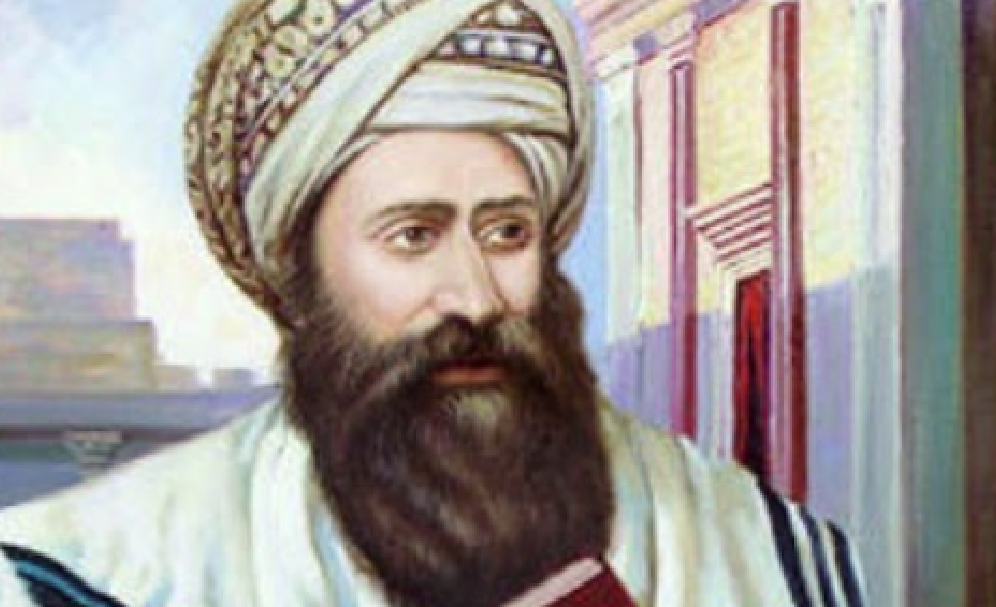
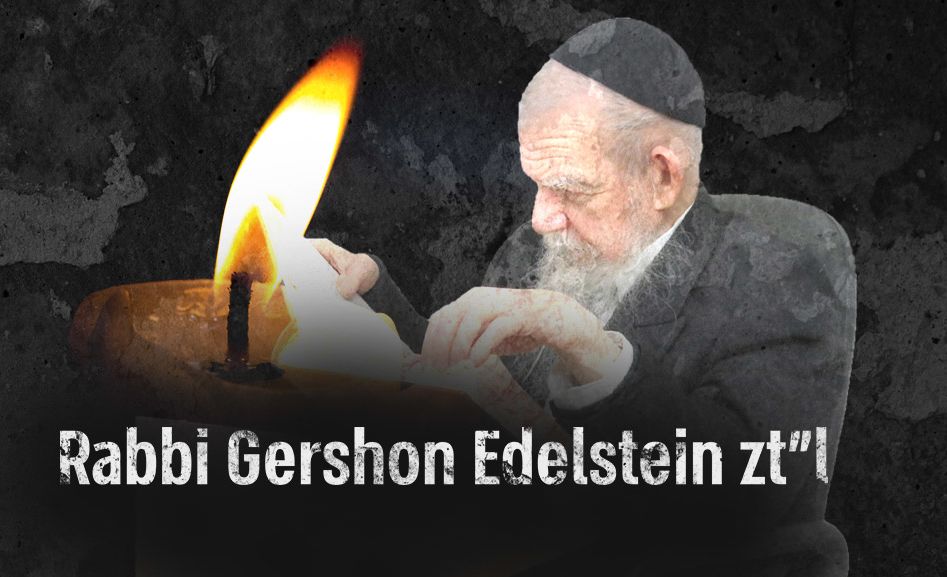
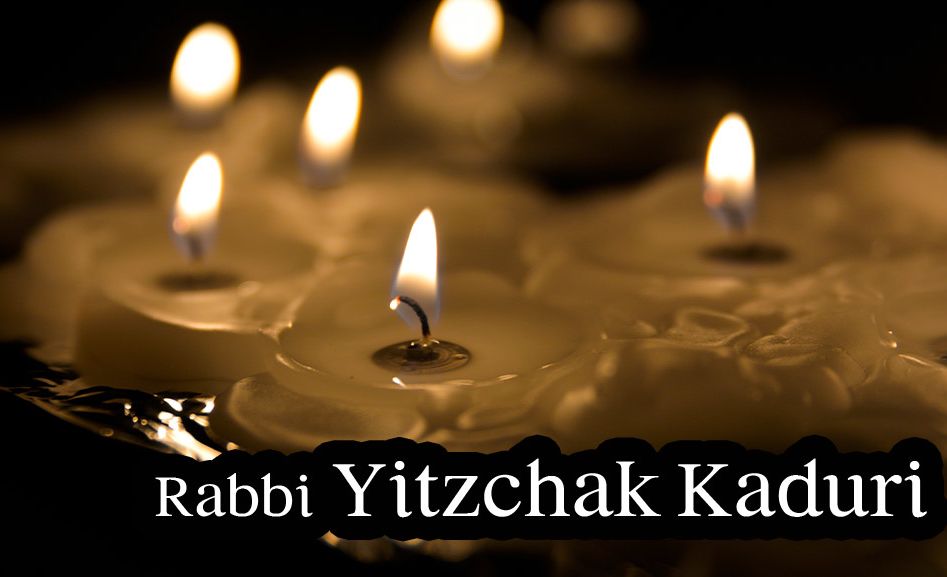
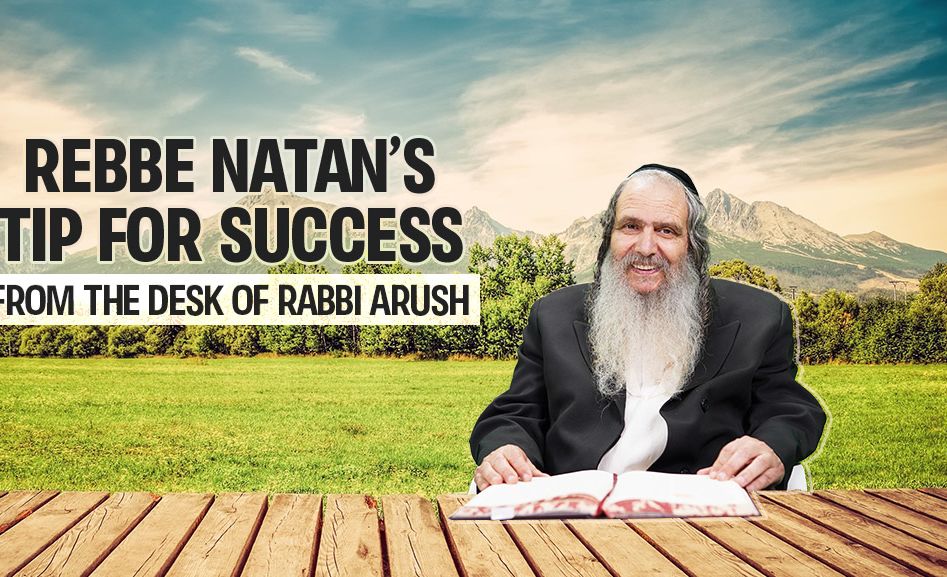

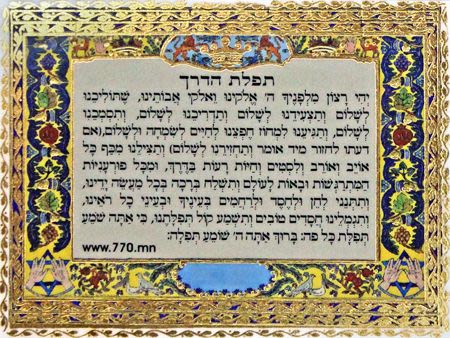
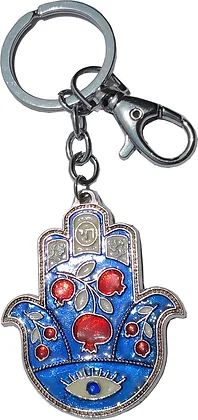

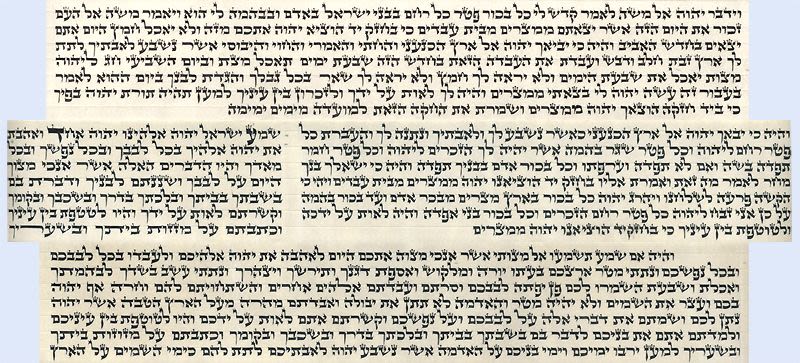
Tell us what you think!
Thank you for your comment!
It will be published after approval by the Editor.